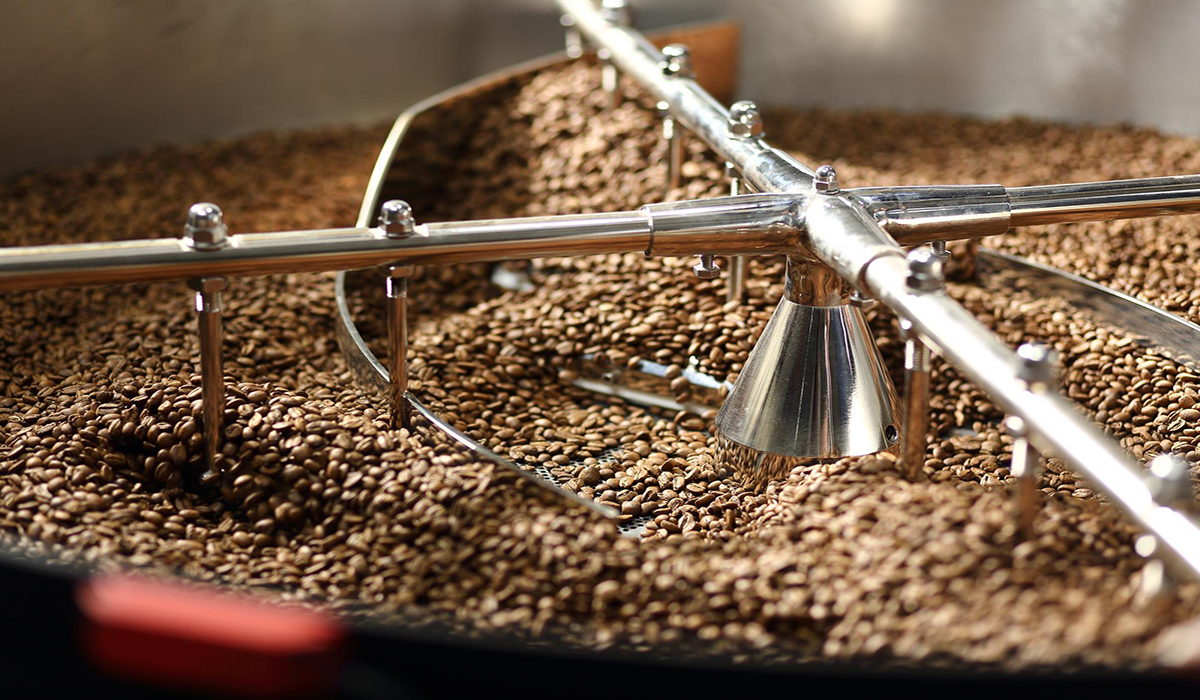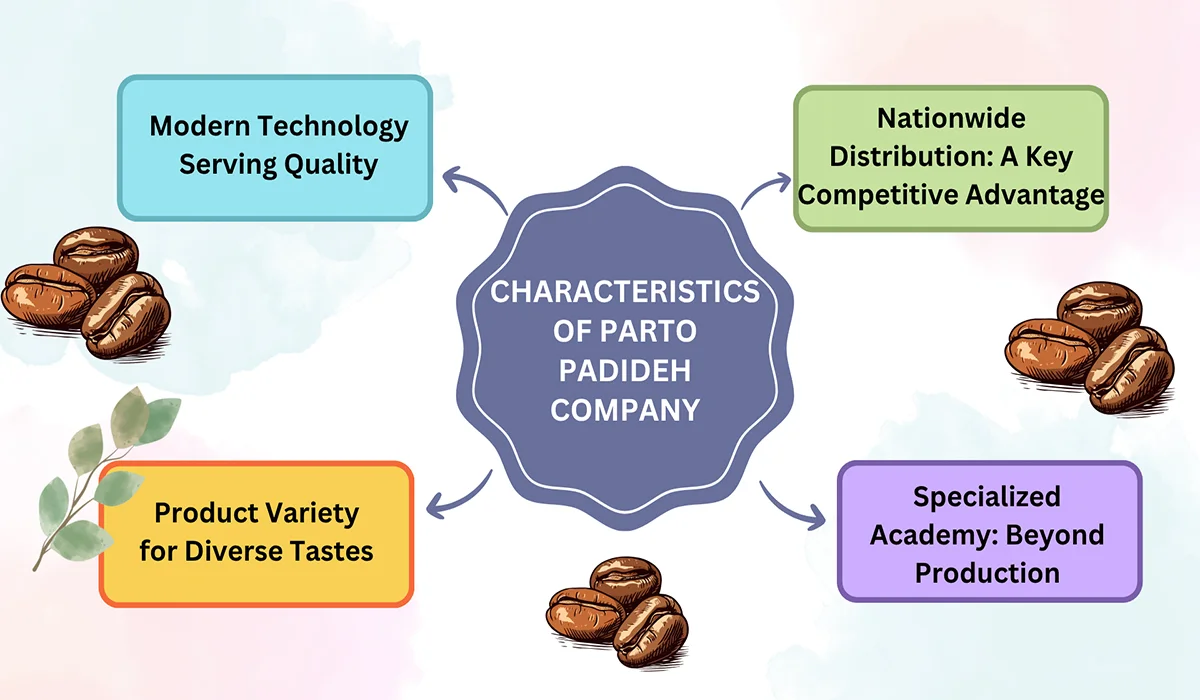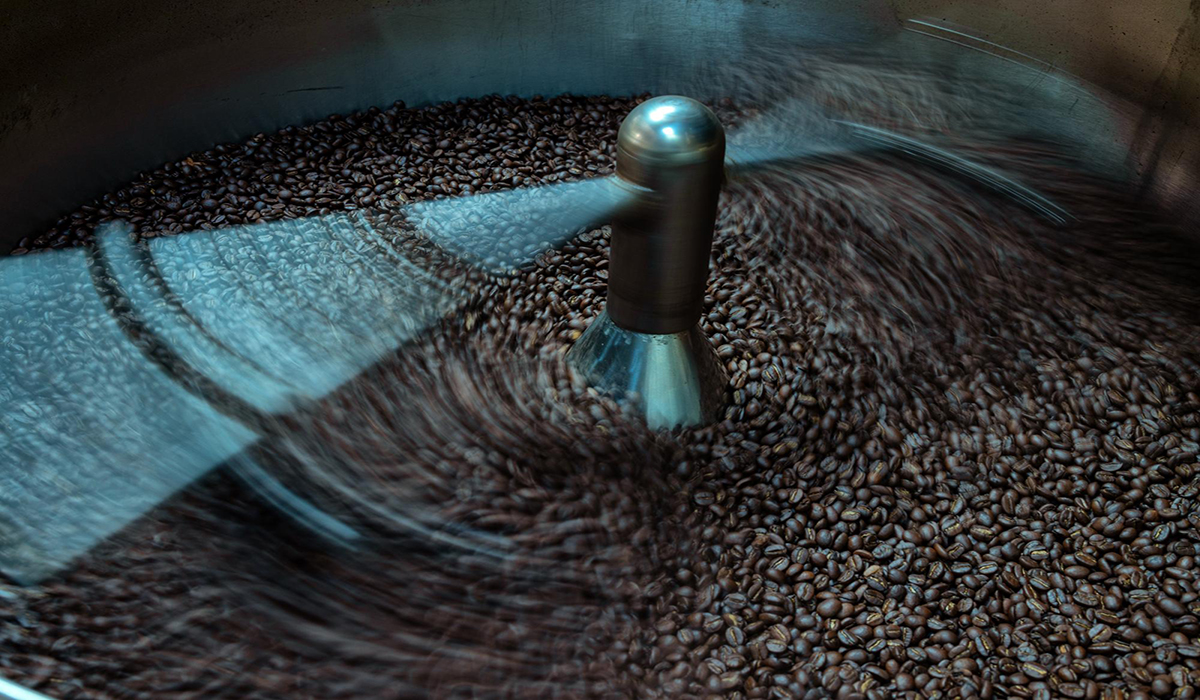The Growing Coffee Industry in Iran and Parto Padideh’s Role in Its Future

Coffee consumption in recent years has experienced a remarkable increase in Iran. Statistics show that approximately 2.2 billion cups of coffee are consumed daily worldwide, placing this beverage as the third most consumed drink globally. But what will the future of coffee in Iran look like?!
Iran has not remained untouched by this global trend. Changing tastes among the younger generation, the growing number of cafés in various cities, and greater public familiarity with coffee culture all indicate that the coffee market in Iran is growing, creating numerous opportunities for investors. The coffee industry in Iran is expanding rapidly, and companies that enter this field early will have a greater chance of success.
Experts predict that per capita coffee consumption in Iran will significantly increase over the next decade, reflecting the growth potential of the coffee market in Iran. A look at regional countries such as Saudi Arabia, with a per capita consumption of 1.5 kilograms, shows that there is considerable room for growth.
Cafés in Iran are not just places for drinking coffee; they have become social hubs for meetings and work gatherings. This has made coffee an integral part of the lifestyle of educated and young segments of society. Daily fatigue and the need for increased focus in work environments have also contributed to rising coffee consumption.
Introducing Parto Padideh and Its Characteristics
Parto Padideh has taken a major step toward advancing the coffee industry in Iran by importing advanced machinery from Italy, aiming to play a significant role in the future of coffee in Iran. Understanding the diverse needs of the market, Parto Padideh offers three main brands targeting specific consumer groups. With a production capacity of 500 kilograms per hour and the ability to produce 10–12 tons of coffee daily, this company has become one of the largest coffee producers in Iran.
In addition to production, Parto Padideh has an extensive program for importing raw materials from source countries such as Brazil, India, Indonesia, Vietnam, and Colombia. The company also plans to expand into coffee-related machinery and equipment trading. Using precise testing for quality control, collaborating with international specialists, and maintaining strong technical support from Italian companies demonstrates Parto Padideh’s firm commitment to shaping the future of coffee in Iran.
Modern Technology Serving Quality
Parto Padideh uses the hot-air roasting method, a significant innovation in the coffee industry. Unlike traditional methods where coffee beans are roasted on a hot surface, hot-air roasting uses streams of hot air (200–250°C) to roast beans evenly.
This method produces coffee with a more uniform roast and a richer aroma and flavor. It also speeds up the roasting process and allows precise control over roasting parameters.
The roasting machines are equipped with smart sensors that allow exact temperature and time control. Storing multiple roasting profiles ensures consistency and repeatability of quality. The production process is fully mechanized with no manual interference.
Using magnets to separate metals, stone separators to remove foreign objects, and sorters with 60 electronic eyes to detect defective beans significantly improves the final product quality.
Product Variety for Diverse Tastes
Understanding different consumer preferences, Parto Padideh has designed three main brands. Diamante Coffee, made with a high blend of Arabica beans, is designed for those seeking premium coffee and willing to pay more for it.
This brand is aimed mainly at specialty cafés whose customers have sophisticated tastes. Parto Padideh’s coffee is an ideal choice for cafés seeking a balance between price and quality. This brand includes 17 different products, mostly suited for commercial use.
Another brand, Felicita Coffee, is designed for a variety of consumers and offers products tailored to different tastes and preferences.
The third brand, Opera, offers 27 diverse products to meet the needs of household consumers. This range includes whole bean coffee, ground coffee, coffee capsules, and brewed coffee, all specifically designed for supermarket sales. In total, Parto Padideh offers 45 diverse products, with plans to expand this range further.
The company also has the capability to produce customized coffee blends according to customer requirements. This variety is a key competitive advantage against other coffee producers.
| Topic | Current Situation in Iran | Future Trend | Role of Parto Padideh |
|---|---|---|---|
| Coffee Consumption | ~200g/year (below global average) | Expected to rise to 500g in the next 5 years | Promoting coffee culture with diverse products |
| Coffee Market | Growing, mostly imported | Expanding domestic market and production | Investing in modern roasting and production |
| Consumer Preferences | Preference for instant and espresso | Growing demand for specialty, high-quality coffee | Education and specialty coffee offerings in Diamante Coffee, Felicita Coffee, and Opera |
| Coffee Culture | Mostly cafés, less home consumption | Expansion of home consumption and cafés | Barista training and culture promotion |
| Employment | Limited to cafés and imports | Increase in production, distribution, and training jobs | Creating jobs through production line and coffee academy |
| Coffee Quality | Dependent on imported green beans | Move toward internal quality control | Quality control in roasting and standard product delivery |
| Innovation & Technology | Limited use of technology | Introduction of modern roasting & packaging | Advanced machinery in production line |
| Export Share | Minimal and limited | Potential for processed coffee export | Developing coffee export with Iranian brands |
Coffee Academy: Beyond Production
Parto Padideh plans to establish a specialized coffee academy, going beyond production to education. The academy will be free for the company’s customers and cover a wide range of coffee-related training, from roasting processes to barista skills.
The company’s leadership believes one of the biggest challenges for the coffee industry in Iran is the lack of consumer and café owner knowledge about quality coffee. The Parto Padideh Coffee Academy aims to bridge this gap.
At the academy, participants will learn modern brewing methods, bean differences, the science of roasting, and its impact on flavor.
This knowledge improves coffee quality and spreads coffee culture in society. No competitor currently offers such a comprehensive academy, making it a strategic advantage for Parto Padideh. Plans also include hosting international coffee training courses to elevate Iran’s role in the regional coffee industry and improve the future of coffee in Iran.
Nationwide Distribution: Key Competitive Advantage
One of the main issues in Iran’s coffee market is limited distribution, which could affect the future of coffee in Iran. Many coffee producers operate in specific areas, restricting consumer access to products nationwide. Parto Padideh has addressed this by establishing strong distribution networks.
Its distribution network can deliver products to every corner of the country, making Parto Padideh brands recognizable across Iran. This distribution strength is especially important for cafés that require reliable and consistent access to quality coffee. Guaranteeing product availability builds trust with café owners, and an efficient ordering system ensures easy ordering and tracking. Powerful logistics allow prompt deliveries, giving Parto Padideh a significant advantage over local and regional competitors.
For orders or inquiries about products, please contact us.



